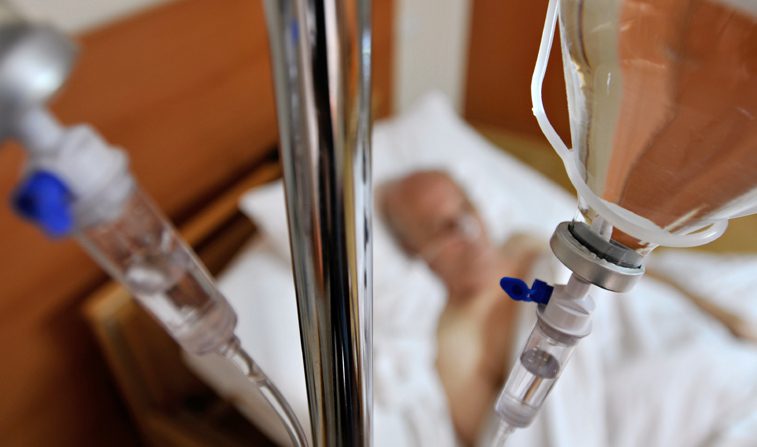Pennsylvania Medical Malpractice Attorneys
Holding Physicians, Hospitals & Medical Professionals Responsible in Pennsylvania
When medical practitioners are treating patients, they must do so following a standard of care. That means they are required to act in a way a reasonable professional would in similar situations. Unfortunately, not all doctors, physicians, nurses, hospital staff, or other caregivers adhere to this standard. When medical professionals are negligent or careless in their diagnoses, treatments, or aftercare, they can cause serious harm to their patients. In such situations, the injured party may have a right to pursue a medical malpractice claim.

If you or a loved one was harmed by a medical practitioner’s inaction or reckless actions, reach out to Gay Chacker & Ginsburg Trial Lawyers immediately. Our Pennsylvania medical malpractice lawyers are committed to providing the skilled legal representation you need and working toward just compensation on your behalf.
Contact our team online or call us at 215-567-7955 today to get started with a free consultation.
We handle numerous medical malpractice cases, including:
- Allergic Reactions: A patient can suffer further medical conditions, or even death, if a medical professional administers a drug they’re allergic to or fails to react appropriately when the patient is having an allergic reaction.
- Birth Injury: Medical professionals who provide improper care during or immediately after a baby is born could cause harm that has lifelong consequences.
- Cerebral Palsy: Mistakes made by medical professionals during a baby’s birth could result in brain damage that causes cerebral palsy.
- Hospital Infections: When medical professionals fail to adhere to aseptic techniques, they can spread infections to patients, causing greater harm and the need for more medical treatments.
- Hospital Negligence: This occurs when a medical professional performs below the standard level of care and commits an error that causes harm to a patient.
- Failure to Diagnose Cancer: Failing to diagnose cancer may result in a patient not getting the necessary treatment timely or at all, which could lead to further complications.
- False diagnosis: If a medical professional does not correctly diagnose an illness or makes a delayed diagnosis, the patient may receive treatment they didn’t need or may not get the correct care for their underlying condition and could suffer harm.
- Medication Errors: Prescribing the wrong medication, entering prescription information into the system incorrectly, or failing to warn of harmful interactions between drugs can all result in serious injury, or even death, to a patient.
At Gay Chacker & Ginsburg Trial Lawyers, our team proudly serves victims in Pennsylvania. Call us at 215-567-7955 today to get started with a free consultation.
What Is Medical Malpractice?
Medical malpractice occurs when a patient is harmed by a doctor (or other medical professional) fails to completely perform his or her duties. Generally speaking, to prove that malpractice occurred, you must be able to prove the following elements:
- A doctor-patient relationship existed: You must be able to demonstrate that you had a physician-patient relationship with the doctor you are suing, meaning that you hired the doctor and they agreed to be hired. For example, you typically cannot sue a doctor who gave you advice in passing but did not treat you directly.
- The doctor violated the “standard of care”: It is important to recognize that not all negative medical outcomes are indicative of malpractice. To be liable for medical malpractice, a doctor must have violated the acceptable standard of care in regards to your diagnosis or treatment. In other words, their actions or inaction must have caused you harm in a manner that a competent doctor under similar circumstances would not have. Doctors are not required to be perfect, but they are required to be reasonably skillful and careful when treating patients.
- The doctor’s negligence caused real harm: Another common aspect of malpractice cases is that the allegedly negligent doctor must have caused actual harm to their patient. For example, say a doctor administers an incorrect medication on a patient but it does not worsen their condition. While this is certainly careless, without real consequences, there may not be a valid medical malpractice claim. There must be clear and convincing evidence proving a doctor’s actions directly harmed their patient for a malpractice case to prevail.
Types of Medical Malpractice Cases
According to statistics, every year, 15,000 medical malpractice cases are reported in the country.
Some of the most common examples of medical malpractice include:
- Improperly set bone fractures
- Complications caused to mother or child after delivery
- Anesthesia complications
- Allergic reactions to medications
- Experimental therapy that results in neurological problems or permanent brain damage
- Heart surgery that results in lifelong health problems
- Brain damage caused by feeding a brain surgery patient by mouth
- Addiction that results from prescribing unnecessary drugs
- Physician’s failure to control diabetes
- Misdiagnosis of cancer
- Nerve damage during spinal surgery
- Transfer of a patient from one hospital to another without consent
- Undiagnosed appendicitis
Contact our team at 215-567-7955 or online to schedule your free consultation.








